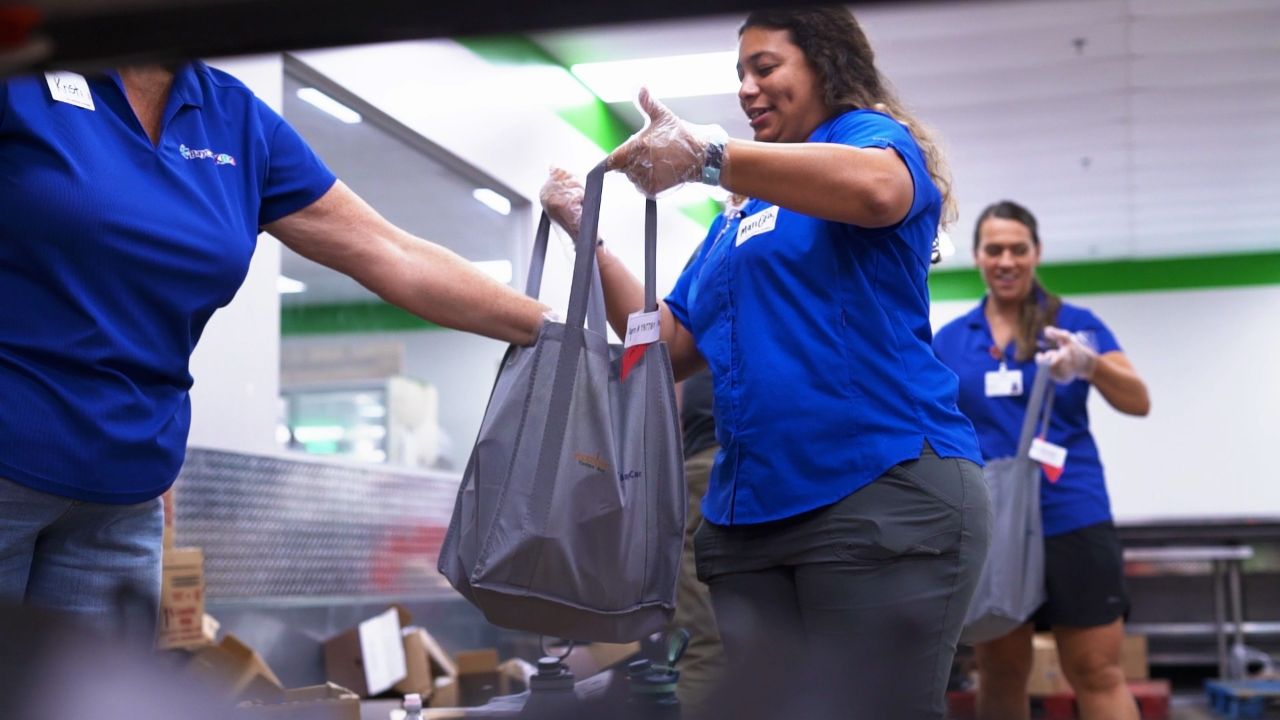Supporting the Community: BayCare’s Initiative to Tackle Food Insecurity
Food insecurity is a top health priority across the four counties that BayCare serves, and since launching the ‘Healing Bags’ program in partnership with Feeding Tampa Bay, numbers show the problem continues to be widespread and can affect anyone.
According to Thomas Agrusti, BayCare's community benefit analyst, the Healing Bags program began at Winter Haven Hospital and progressively rolled out system-wide throughout 2021. The program expanded to all BayCare emergency departments in 2022.
In March 2023, the nursing team took on the role of asking 100% of BayCare inpatients about food insecurity, resulting in substantial increases in the number of Healing Bags distributed.
To date, BayCare has distributed more than 14,000 Healing Bags, and approximately 65% of recipients are financially disadvantaged. Racially, 48% of recipients identify as a minority and 15% of Healing Bags are provided to patients under the age of 18. "This demonstrates that the program effectively targets low-income households while also addressing food insecurity among older adults and families who may be living on the edge," Agrusti explained.
Hospitals like Morton Plant North Bay (MPNB), where Kellene Lindemann works as the ER assistant nurse manager, recently experienced a record week in distribution this summer, handing out 25 bags in just seven days.
“There's a lot of people that need our help. There's a lot of people with little to no resources that are just trying to get by right now and having these bags that we can give out, while it's not fixing the problem completely, it helps them get through a tough time,” Lindemann explained.
Each Healing Bag is filled with nonperishable food items tailored to meet the specific needs of different individuals. The food insecurity bags come in two varieties: one is designed for patients who have access to a kitchen and can prepare meals themselves and includes items like rice and pasta. The other bags are for individuals who lack cooking facilities, such as those experiencing homelessness. These bags contain ready-to-eat food that can be consumed without the need for any additional preparation.
With the help of the nursing staff and registration team, patients are screened for food insecurity. If a patient indicates they have needs and would like support, the hospital’s team delivers a Healing Bag to the patient upon discharge. Case managers also work to connect these patients with locating longer-term food access and additional resources in their neighborhood after they leave the hospital.
“The need for help, especially here at North Bay, is real and the desire to help people is also undeniably real,” Lindemann said. “Whether it is through financial aid to alleviate hospital bills, access to community healthcare resources, or the distribution of food insecurity bags, our team members are determined to make a positive impact.”
The program is available to inpatients as well as emergency department patients across all of BayCare’s 16 hospitals.

